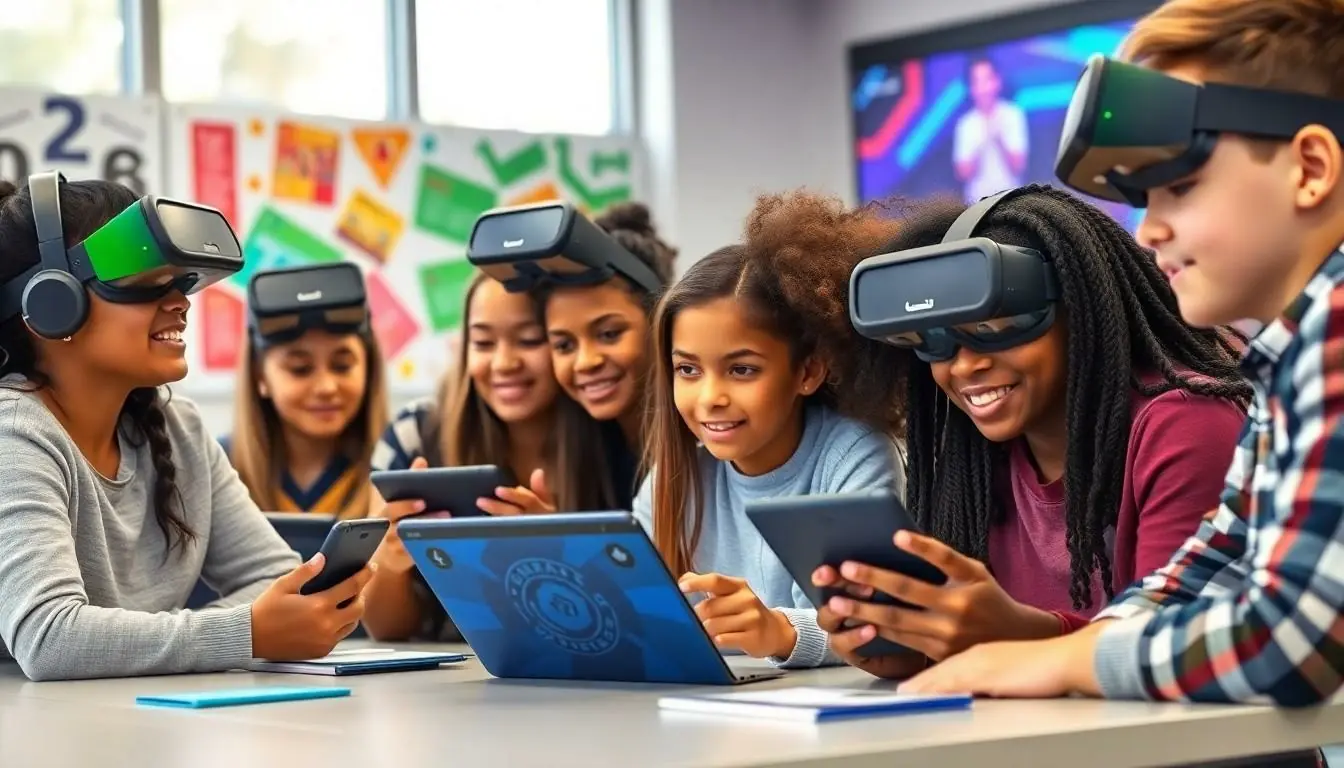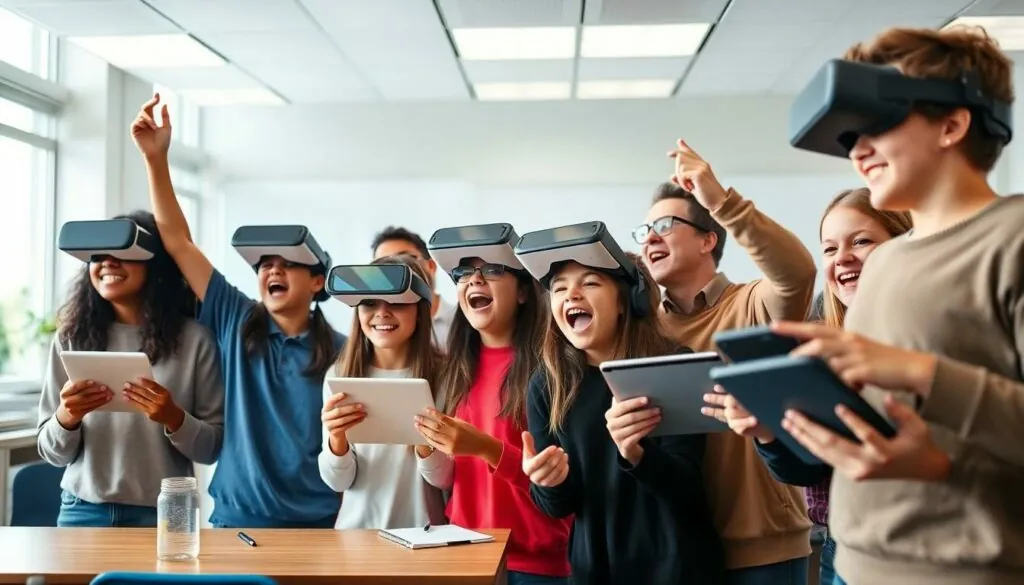Table of Contents
ToggleIn today’s fast-paced world, education isn’t just about dusty textbooks and chalkboards. Enter the realm of edtech, where learning meets innovation and classroom boredom goes to die. With a plethora of tools at their fingertips, educators and students alike are transforming the way knowledge is shared and acquired.
From gamified learning platforms that make math feel like a video game to virtual reality experiences that transport students to ancient civilizations, the examples of edtech are as diverse as they are exciting. These tools don’t just enhance learning; they make it downright fun. So buckle up and get ready to explore some of the coolest edtech examples that are reshaping education as we know it. Who knew learning could be this thrilling?
Popular Edtech Examples
Educational technology continues to innovate, offering diverse tools to enhance learning experiences. This section explores popular examples of edtech that are transforming the classroom environment.
Learning Management Systems
Learning Management Systems (LMS) streamline course administration, facilitating communication between teachers and students. Platforms like Moodle and Canvas provide features such as assignment tracking and grading. These systems support blended learning, allowing for both online and face-to-face interactions. Engaging users ensures easier access to educational resources and fosters collaboration through discussion forums. Data supports increased student satisfaction and improved academic performance when using LMS.
Interactive Learning Tools
Interactive learning tools enhance student engagement through dynamic activities. Examples include Kahoot and Quizlet, which gamify quizzes and flashcards, making study sessions more enjoyable. These platforms encourage participation and allow for real-time feedback. Students can collaborate on projects and compete in friendly challenges, promoting motivation. Research shows that interactive tools improve retention rates and encourage lifelong learning habits.
Innovative Edtech Examples

Educational technology is revolutionizing how students learn. Various innovative tools enhance engagement and improve academic outcomes.
Gamified Learning Platforms
Gamified platforms provide engaging experiences to students. For instance, Kahoot transforms quizzes into competitive games. Participants answer questions in real time, fostering friendly competition and collaboration. Quizlet offers flashcards combined with interactive learning modes, increasing retention. Research shows that gamified learning increases motivation and participation rates. By integrating elements of game design, these platforms create a fun and dynamic environment that attracts students.
Virtual Reality in Education
Virtual reality offers immersive learning experiences. Programs like Google Expeditions allow students to explore historical events or scientific phenomena firsthand. Learners can navigate through simulations, enhancing spatial awareness and contextual understanding. Evidence indicates that VR can improve knowledge retention and critical thinking skills. By experiencing scenarios through virtual environments, students grasp complex concepts more effectively. These immersive tools foster engagement and make learning memorable.
Benefits of Edtech Examples
Edtech examples offer numerous advantages that enhance the learning experience. They foster interactive, personalized, and effective education.
Enhanced Engagement
Edtech tools capture student interest through interactive elements. Platforms like Kahoot gamify quizzes, making assessment fun and competitive. Students demonstrate higher participation levels when content feels enjoyable. Many learners actively engage through immersive technologies such as virtual reality. Research reveals these experiences lead to increased motivation and curiosity. In classrooms, educators find that gamification encourages collaboration. Engagement through technology also promotes meaningful discussions among peers.
Personalized Learning Experiences
Edtech tools enable tailored educational journeys for each student. Learning Management Systems allow teachers to customize content based on individual needs. Data-driven insights from platforms help identify areas requiring improvement. Students benefit from adaptive learning technologies, which adjust difficulty based on their performance. These personalized experiences enhance mastery of the subject matter. Support for different learning styles ensures everyone receives the necessary attention. Ultimately, personalized learning fosters deeper understanding and retention.
Challenges in Implementing Edtech Examples
Implementing edtech examples comes with several challenges that educators and institutions face. Addressing these obstacles ensures effective integration of technology in education.
Accessibility Issues
Accessibility stands as a significant challenge when adopting edtech solutions. Many students lack reliable internet access or necessary devices, limiting their participation in digital learning environments. Furthermore, not all educational technology is designed with inclusivity in mind, making it difficult for students with disabilities to fully engage. Solutions like screen readers or alternative text options often remain underdeveloped. Schools must prioritize equity by providing resources and infrastructure to bridge these gaps, allowing every learner the opportunity to benefit from innovative tools.
Integration with Traditional Methods
Integrating edtech with traditional teaching methods poses another hurdle. Teachers often struggle to blend new technology with established practices. Resistance to change may lead to reluctance in adopting innovative methods. Additionally, a lack of proper training can hinder instructors from utilizing available tools effectively. Institutions must support professional development, offering training sessions that help educators incorporate technology in the classroom seamlessly. Fostering collaboration between tech and traditional educators can enhance acceptance and improve the overall educational experience.
The landscape of education is undeniably shifting thanks to the rise of edtech. These innovative tools not only enhance engagement but also support personalized learning experiences that cater to diverse student needs. As educators embrace technologies like Learning Management Systems and gamified platforms, they create dynamic environments that foster collaboration and critical thinking.
Despite the challenges of accessibility and integration, the potential benefits of edtech are immense. By prioritizing equity and providing adequate training for teachers, schools can ensure that all students have access to these transformative resources. The future of education lies in the synergy between technology and traditional teaching methods, paving the way for a more inclusive and effective learning experience.




